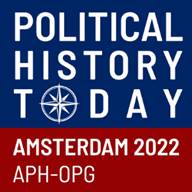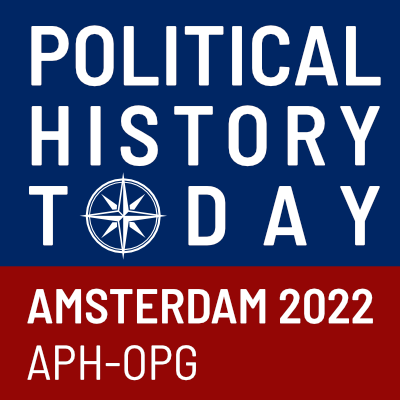Extended deadline: 4 March 2024!
We are thrilled to announce the 11th International APH PhD Conference: Political Histories of Conflict: Social Cleavages, Political Ideologies, Clashes of Sovereignty
Current events require a major revaluation of traditional approaches to social unrest, political division, and war. This conference seeks to take stock from a historical perspective and stimulate deeper inquiries into the causes and processes of political conflict, thus investigating historical issues that are highly relevant in the world of today.
Recent years have seen established domestic and global ways of resolving conflicts threatened by increasing social cleavages, growing political polarisation, and state-led warmongering and aggression. Historically, reformist industrial relations and the system of liberal democracy have functioned as platforms for the aggregation of opposed interests in modern European society. In international relations, the “Concert of Europe”, imperial governance, the World Wars, the Cold War, and post-Cold War efforts have offered different models of cooperation, conflict, and containment. The conference seeks to enhance our learning from these and other historical systems and structures to gain a better understanding of present developments. Our conception of historical lessons is to be re-evaluated and reformulated in the light of recent events such as the Russian attack on Ukraine.
Given the need for reformulation, the conference calls for novel approaches to political conflict and conflict resolution across societal, political, and international relations. It attempts to incorporate new ways of discussing clashes between interest groups, political dissent, mechanisms of conflict resolution, colonial ambiguities, and situations of democratic breakdown or war.
Södertörn University’s research profile has a special emphasis on Baltic and East Central European Studies. We have long acknowledged the need to reach out to scholars and research centres from these regions, inviting them to join in international discussions on political history. From this perspective it is crucial to enhance the pan-European profile of the APH at large and thereby promote East–West collaboration in developing new insights on the nature of conflict and the future of Europe. In addition to other topics, we therefore specifically call for panels and papers that address the Baltic Sea Region and East Central Europe. Scholars from these regions are also especially encouraged to submit proposals.
At the same time, the conference expects a wealth of historical case studies that are
situated in different historical settings and thus will help us enhance the conceptualisations of conflict in the humanities and social sciences. A variety of cases will enrich conflict studies in the broad meaning of the term, encompassing both domestic and international relations. Similarly, we encourage a variety of methods; for example, oral history and digital approaches alongside traditional document analysis. Finally, the conference explores to what extent political history is to be reframed as a history of conflicts and conflict resolution, with significant lessons for our time.
A broad understanding of the field of political history makes it a fruitful basis for research exchange. It can function as a platform for the history of institutions, parties, public policies, social movements, ideas and ideologies, and it includes political culture and political behaviour. Moreover, international relations and military history as well as transnational relations and global civil society are included in our understanding of political history. The conference will bring these different aspects together by means of the concept of political conflict and conflict resolution: structures of social relations, the political realm, the historical role of ideas, and cross-border efforts that are politically relevant.
The APH is devoted to the interaction of doctoral students and other emerging scholars,
on the one hand, and more experienced researchers, on the other, and encourages especially younger scholars to submit proposals and to contribute with papers.
We are calling for panel and paper proposals addressing various kinds of historical
conflicts. 1) Proposals for 90-minute panels include a 250–400 words overarching abstract as well as the titles of three to four papers with 150 – 250 words paper abstracts. Short bionotes and e-mail addresses for all participants are to be provided, including for the session chair and a potential commentator (commentators are optional for sessions of 3 papers only). 2) Proposals for individual papers include a 150–400 words paper abstract as well as a short
bio-note and e-mail address of the presenter.
Deadline: 15 February 2024 4 March 2024. Please submit your proposal to: aph2024@sh.se. The
conference is planned as a physical event at Södertörn University|Stockholm, 12–14 June 2024.
Organizing committee:
Prof. Dr. Andreas Åkerlund,
Prof. Dr. Norbert Götz,
Asc. Prof. Yulia Gradskova,
Dr. Francesco Zavatti.


